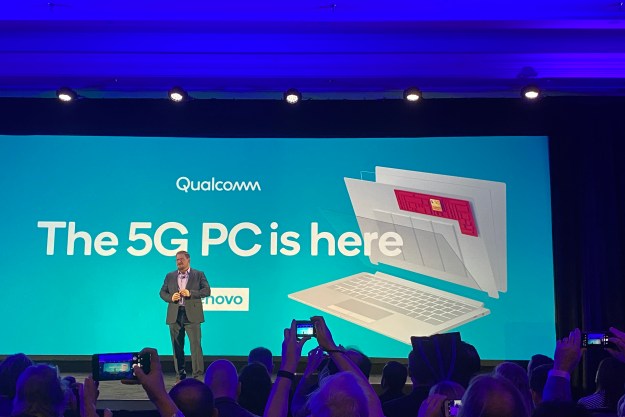Apple purchased Intel’s 5G modem business for a billion dollars in late July – so will Tim Cook and Co. write Qualcomm out of the will completely? In an exclusive interview at IFA 2019, Qualcomm President Cristiano Amon made clear that this partnership is anything but over. Reports of its death have been highly exaggerated.
“We have restarted our relationship with Apple. I think we settled our disputes, and we have signed a multiyear agreement for our chipset. We said multi, we didn’t say one year or two years, we said multi,” he noted with a smile. “So we feel very confident about our ability to be a supplier to Apple.”
While Qualcomm dominates the 5G market, Amon noted that there are several other companies in the space, including Huawei and Samsung. It took them seven to ten years to build out a 5G solution, he noted. So Apple’s acquisition doesn’t mean it will immediately be able to turn on its own chips, despite the company’s stated plans to build its own 5G chips by 2021.
“It’s not an easy task … as long as modem technology continues to change, we feel good about our position,” Amon said. One key fact is the evolution of antenna technology, which has had a profound impact on modern radios and will shape how we use 5G. Phones used to have a single antenna that was shared with GPS and Wi-Fi; phones that use millimeter wave tech (one popular form of
At IFA 2019, Qualcomm announced “modem to antenna” 5G solutions. “We don’t think about ourselves as just a modem maker. We have been building everything from modems to PAs to filters to tuners to switches and you name it,” Amon told Digital Trends. In other words, even if Apple can rapidly ramp up the new chipset arm, it will still be dependent on companies like Qualcomm for other parts of the system.
Qualcomm on Huawei: “Co-opetition” is the name of the game
“We have a unique relationship. We see them as a competitor but we also see them as a customer, so it’s a relationship of ‘co-opetition,’” he said. Huawei buys chipsets from Qualcomm, and its small cell equipment uses Qualcomm chipsets as well. That said, like any American company, recent restrictions by the U.S. government on who can do business with Huawei have put a damper on that business. Its future remains uncertain. “Like any other American company, we have limitations on what we can do with them at this point. Like all of the other American companies, we’ve applied for a license, and we’re awaiting a response.”
Concerns have swirled for years around potential backdoors in Huawei networking gear, a fundamental part of the infrastructure. Many companies rely heavily upon Huawei gear for their country’s networking; in the U.S., those concerns have led President Trump to draw strict limits around the company’s ability to do business with America and its companies. In a recent Bloomberg Businessweek interview, Microsoft President Brad Smith said he thought such rules were unfair, but his requests for more detailed info have been ignored.
“Oftentimes, what we get in response is, ‘Well, if you knew what we knew, you would agree with us,’” Smith said. “And our answer is, ‘Great, show us what you know so we can decide for ourselves. That’s the way this country works.’”
Amon is less blunt in his assessment, noting that 5G has broad applications outside of the computing and telecom industry, areas with very different concerns. Citing a partnership with one of Europe’s largest power providers to build a private
“One thing is, somebody hacks into your Facebook account. The other is, somebody brings the power grid down. It’s a completely different thing,” he said. “There’s a lot of politics.”
Editors' Recommendations
- SpaceX claims 5G plan could ‘render Starlink unusable for most Americans’
- Qualcomm takes on the Apple M1 with new Snapdragon 8cx Gen 3 for PCs
- Galaxy Book Flex2: Samsung’s first 5G laptop has an 11th-gen Intel Processor
- Acer’s 5G Spin 7 is the world’s first laptop powered by the Snapdragon 8cx Gen 2
- You can now buy the Lenovo Flex 5G, the first 5G laptop


